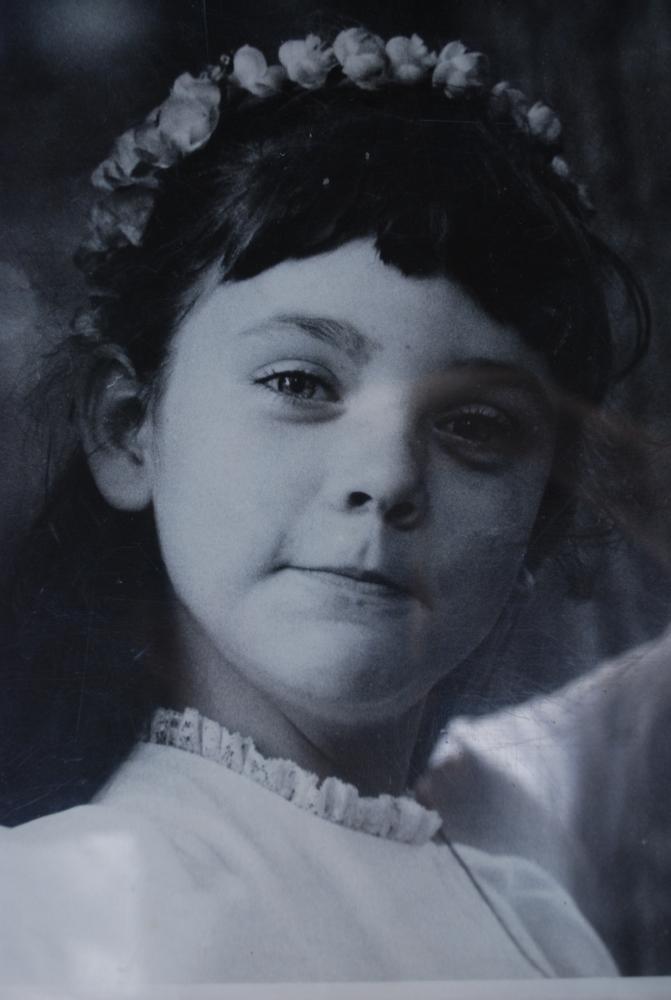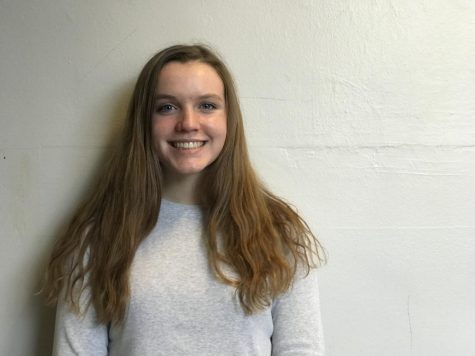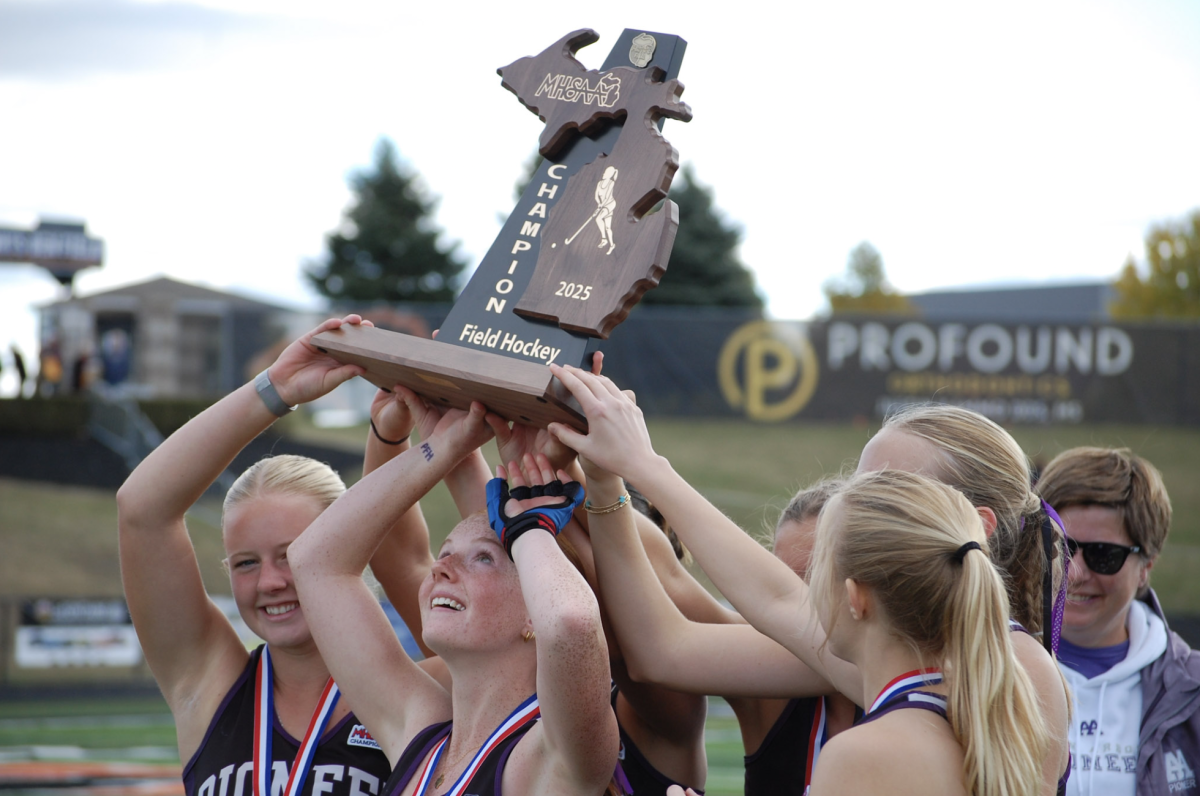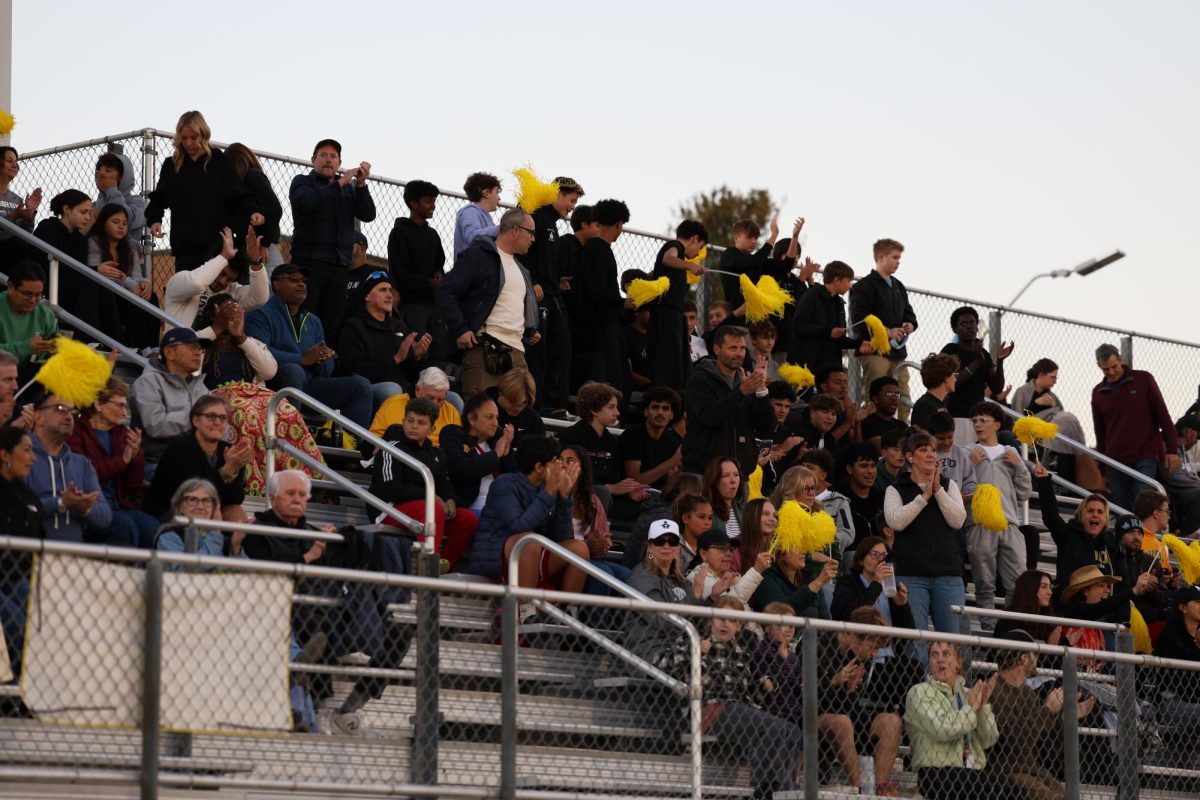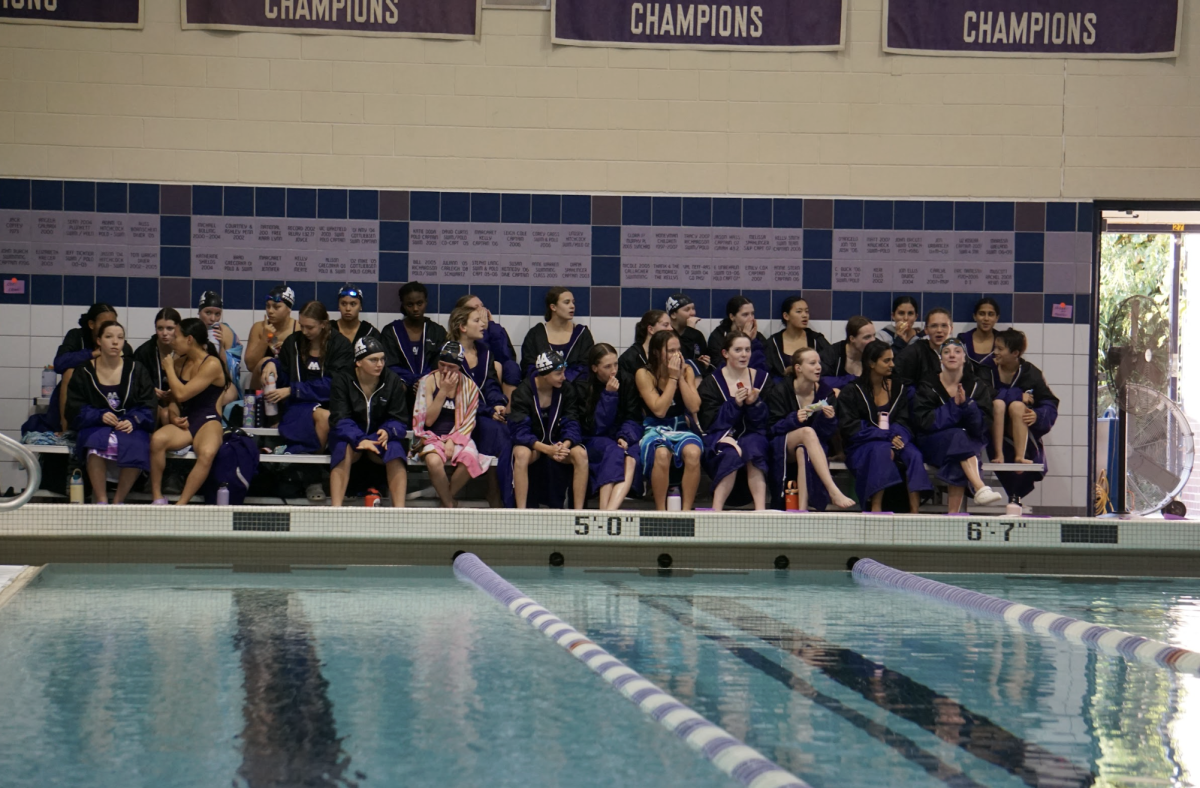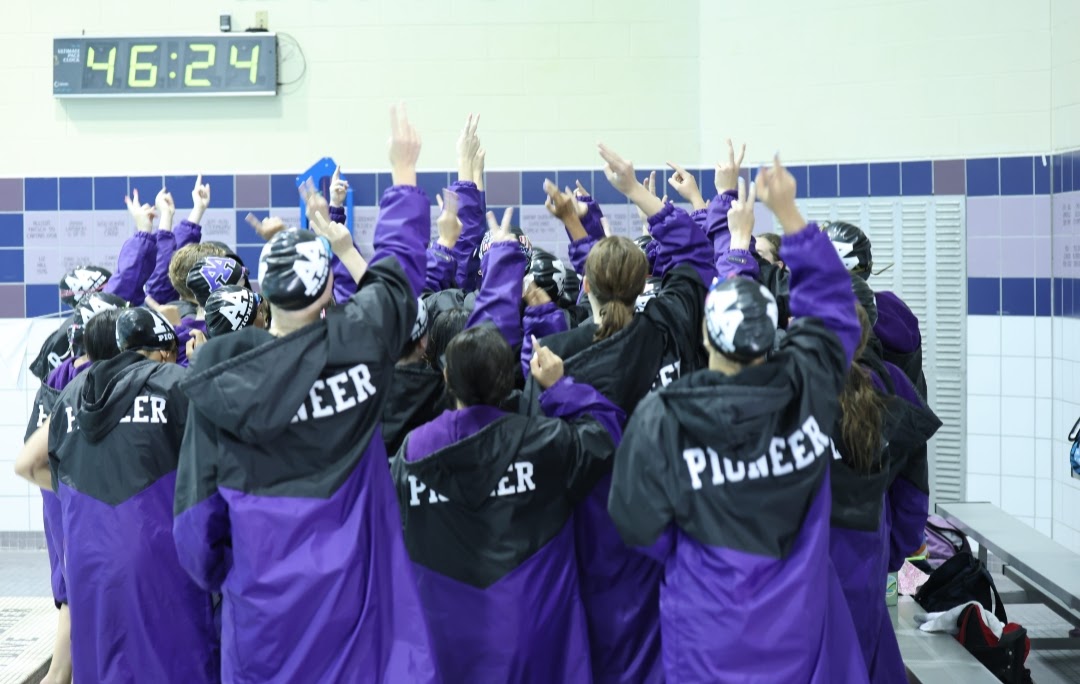Looking Back
October 10, 2017
Aina Bernier and her mother, Victoria Vaitiekaitis, sat across from each other in a diner in New Hampshire, eating pea soup. Victoria enjoyed having her dark-haired, blue-eyed daughter along. They would drive up from New York City, which took about four hours, and stay in a Holiday Inn. Once they finished their soup, they would pick up pistachio ice cream, her father’s favorite.
Bernier, who was only five years old at the time, recalls the boredom that would ensue as she sat in the waiting room of the Veterans Hospital with her coloring books.
At first, Bernier’s father was so depressed about having multiple sclerosis that he didn’t want to see his only daughter. So, for the first year, she stayed there in that waiting room.
But, after a year went by, Bernier started going up with her mother. “It was just sad, because he was obviously a very wonderful person, and I really loved him and he really loved me,” Bernier said. Her father could hardly talk and was completely paralyzed, except for his right arm. “As I got older, I became aware of how awful his existence was, because he was pretty much completely cognitively there but he couldn’t move, so he was kind of trapped in his own body.”
Bernier and her father, with help from volunteers, would write each other letters throughout the years. But Bernier still missed having him in her life.
After spending 16 years paralyzed, Bernier’s father died when she was 19. But when Bernier remembers her father, she likes to think of who he was before the hospitals. Bernier always speaks with pride about him. Ernest Albert Bernier Jr., born in New Hampshire, was a highly skilled pilot who flew over the ‘hump’ of the Himalayas to deliver supplies during World War II. Back in those days, the planes weren’t able to reach the altitude that was needed to fly above the Himalaya Mountains, so Ernest would have to weave between them.
After the war, Ernest flew for commercial airlines. To this day, whenever Bernier gets on a plane, she thinks of her father. “Every time I fly, I invite him to fly with me,” Bernier said.
However, the multiple sclerosis still took a toll on Bernier’s family. “It was hard, my mother was very sad,” Bernier said. “It was a very unusual situation and she worked a lot, she was an anesthesiologist and was often on call.”
In addition, Victoria was also a survivor of World War II, having grown up in Lithuania. At first, according to Bernier, Victoria was the fun parent – the parent with whom she would spend weekends and days off with. But, as Bernier grew up, they started to get into more and more conflicts. “People weren’t quite as aware of the effects of PTSD, this was during the 70s,” Bernier said. “[Our relationship] was pretty emotional, I always knew that it wasn’t easy for her. The conflicts we would get into took precedence over the background respect and appreciation that I generally had for her. But now I really appreciate what she did and what she lived through.”
Still, Bernier describes her childhood in Queens, New York City with a sense of happiness and comfort. With her mother often gone, her grandmother, Olga, was the one who raised her. “She was very calm, very steady, very intelligent,” Bernier said. “She just thought that I was the most wonderful thing on the face of the earth.” Olga had survived both World Wars. She was born in Latvia and moved to Lithuania later on. “Because she was a World War II survivor, and she had been through a lot, I think that being able to help raise me was a real source of joy for her,” Bernier said.
Bernier is also very thankful for having grown up in New York City. “It’s had a profound influence on how I view the world,” Bernier said. “I really enjoyed being in very multicultural environment, and Queens is one of the most diverse areas in the United States. It made me very comfortable to be among people of other cultures, it made me really value that and seek it out. I’m happy when I go back to New York City because of the interesting people that I’m surrounded by. I think the diversity of people makes the world much more interesting, and much more fun.”
In the summers, they would escape the heat of the city to the Catskill mountains. Bernier valued those summers, having always been drawn to the outdoors. They would spend their time on the screened in porch, which served as the living room and dining room. When it rained Bernier would go out and play in the puddles.
This love for being in nature was what eventually drew Bernier to the University of Michigan. Bernier originally went to the University of Chicago, but one day a friend told her that the University of Michigan had a class where you could walk around in the woods for five hours. Hearing this, Bernier packed up her things and moved to Ann Arbor to study Ecology and Evolution – with a focus on birds.
Bernier soon came to love Michigan. “Michigan is surrounded by the Great Lakes, and there’s so much natural beauty here, so you don’t have to travel very far to be in a natural area,” Bernier said. “The Great Lakes ecosystem is the ecosystem in which I feel most at home.”
Ann Arbor is also where Bernier met her husband, Hunter Van Valkenburgh. At that time, Van Valkenburgh was the local mechanic, as well as being a student at the University. He had a VW van, which he bolted his toolboxes to the floor of when he was making house calls. As it turned out Bernier needed her car fixed. “I thought he was very interesting and nice, and I invited him in for a cup of tea,” Bernier said. “But I had a boyfriend at the time, and he had a girlfriend at the time, so we had our cup of tea and we just went on our merry way.”
Then, five years later, they met again in a Chemistry class. Fast forward another six years, and they were getting married in the backyard of the house they still live in today.
It was a large wedding with 250 guests. “We had a lovely time, [there] was great music, it was a group effort, we made all of our own food,” Bernier said. “[Hunter’s] sisters made the cakes, one of our friends brewed all the beer, and it was beautiful. It was a wonderful party, that was a pretty good day.”
Years later, Bernier and Van Valkenburgh were traveling in the Lofoten Islands, a remote area of Norway, with their two kids. They visited a Viking festival, where Bernier happened upon a group of Lithuanian folk singers, dressed in traditional Lithuanian linen. “I just thought this was just the most remarkable thing that in this remote corner in Norway, at a rather remote Viking festival there were people singing Lithuanian songs,” Bernier said.
Bernier learned that anthropologists and archaeologists had determined that the Western coast of Lithuania was a place where Vikings often came to set up trade and even settlements. At that time, Victoria was 91 years old and in a nursing home in Ann Arbor. “I was thinking how it kind of made sense that maybe she had some Viking in her, because she was a very strong-willed, intelligent and sharp person,” Bernier said.
The songs that the Lithuanians were signing was about returning from war. They were the songs people would sing for their loved ones. “I was thinking about her, and just communicating with her spirit,” Bernier said.
The next day, Bernier found out that during the time that she was thinking of her mother, her mother was actually dying. “I like to think that all of these songs that were calling those warriors home were also calling her home, and calling her spirit home to Lithuania.”



